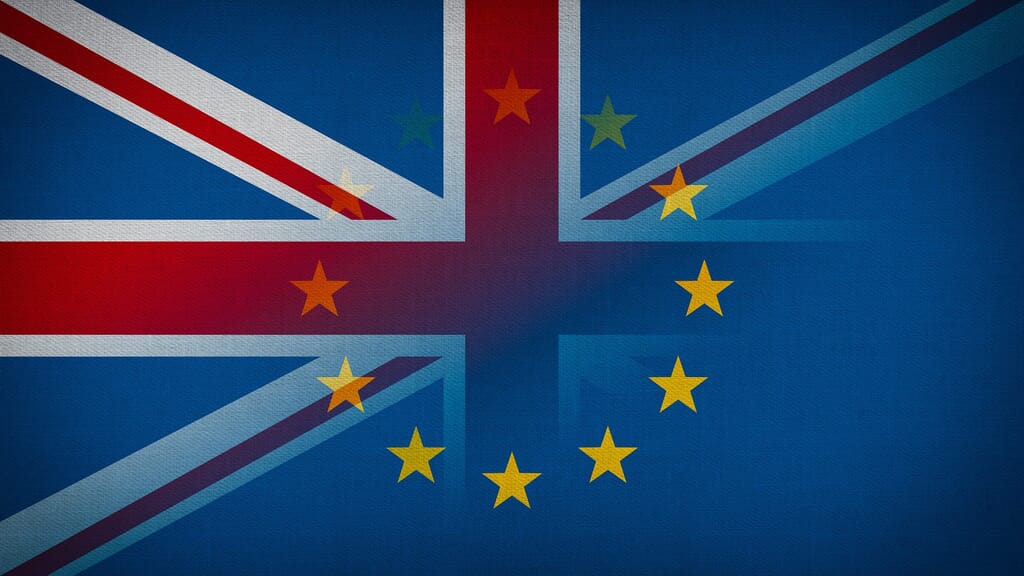
1.1 Under the EU-UK Trade & Cooperation Agreement (“TCA”) entered into on 24 December 2020, the EU State Aid Rules ceased to apply to public subsidies granted in Great Britain after 31 December 2020. However, the Northern Ireland Protocol (NIP) provides that Northern Ireland remains in the EU Single Market and the EU State Aid Rules will continue to apply to public subsidies distorting competition in Northern Ireland.
1.2 The EU State Aid Rules will continue to apply to public subsidies granted in the UK before 31 December 2020, which meet the definition of prohibited State Aid under Article 107 of the Treaty on the Functioning of the European Union (TFEU).
1.3 From 1 January 2021, public subsidies will be governed by the TCA, Chapter 23 in Title XI “Level playing field for open and fair competition and sustainable development”. Chapter 3 contains 13 Articles, which include:
- substantive subsidy rules (i.e. definitions, scope and exceptions, services of public economic interest, principles, prohibited subsidies and subsidies subject to conditions);
- monitoring and enforcement rules and mechanisms (i.e. use of subsidies, transparency, consultations, independent authority, court and tribunals, recovery, remedial measures and dispute settlement.
1.4 In addition to Chapter 2, there are:
- specific rules for energy and environmental subsidies contained in “Annex ENER-2 Energy & environmental subsidies”; and
- additional principles contained in the “Joint Declaration of the European Union and the United Kingdom on monetary policies and subsidy control” and in the “Joint Declaration on subsidy control policies”, notably on subsidies for the development of disadvantaged areas, transport and research & development.
2. PUBLIC SUBSIDIES
2.1 Under the TCA, “public subsidy” replaces the term “State Aid” and recipient “undertaking” become “economic actors”.
2.2 To qualify as a public subsidy under the TCA, the following cumulative criteria must be satisfied:
- the use of public/state resources must be involved;
- the conferring of an economic advantage;
- the aid is specific to one or more recipients;
- there is a potential or actual effect on trade between EU and UK.
2.3 There are exemptions for agriculture, fisheries and the audio visual sector.
2.4 Partial exceptions are provided for:
- subsidies provided to cover damages following natural disasters or other exceptional non-economic occurrences;
- temporary subsidies in case of national or global economic emergency, e.g. the Covid pandemic.
2.5 De minimis exception for public subsidies up to €385K per “economic actor” (i.e. undertaking) over a rolling three year period.
3. PRINCIPLES
3.1 Both the EU and the UK commit to have in place and to maintain an effective system of subsidy control incorporating the following principles:
- a public policy objective limited to the remedy of a market failure;
- any subsidy is proportionate and limited to what is necessary to achieve the objective;
- the subsidy must be designed to change the economic behaviour of the beneficiary;
- there is no compensation of costs that would have been funded by the beneficiary in the absence of the subsidy;
- the subsidy policy is an appropriate instrument to achieve the objective and gives rise to no additional distortive effect;
- the positive contributions to the objective should outweigh negative effects in particular on the level of trade and investment between the EU and the UK.
4. PROHIBITED SUBSIDIES
4.1 The TCA prohibits the following forms of subsidy:
- unlimited guarantees whether in time or scope;
- restructuring subsidies to ailing or insolvent economic actors (undertakings) without a credible restructuring plan;
- export subsidies contingent upon export performance (goods and services);
- subsidies contingent upon the use of domestic content (goods and services).
4.2 In addition, subsidies in the following areas are subject to special conditions:
- subsidies in relation to energy and environment (permitted provided that they are “aimed at, and incentivise, the beneficiary in, delivering a secure, affordable and sustainable energy system and a well-functioning and competitive energy market or increasing the level of environmental protection compared to the level that would be achieved in the absence of the subsidy”. In addition, subsidies must “not relieve the beneficiary from liabilities arising from its responsibilities as a polluter…”;
- subsidies for large cross-border or international cooperation projects such as for transport, energy, environmental, R&D and first deployment projects to encourage development of new technologies;
- subsidies to banks, credit institutions and insurance companies only permitted where based on a “credible restructuring plan that will restore long-term viability”;
- subsidies to airlines unless (i) they are start-ups; or (ii) there is a public service obligation; or (iii) where the route provides other benefits to society.
5. SERVICES OF PUBLIC ECONOMIC INTEREST (SPEIs)
These are essentially the same as Services of General Economic Interest (SGEIs) exempted under EU Rules. An SPEI is a service of an economic nature that public authorities identify as being of particular importance to citizens. Subsidies necessary to support such SPEIs which could not be supplied by market forces alone. e.g. rural bus services.
6. TRANSPARENCY
6.1 All public authorities have an obligation to publish basic information on a subsidy within six months of grant (12 months for a tax measure).
6.2 Publication must be on an official website or public database and must contain the following information:
- the legal basis and policy objective or purpose of the subsidy;
- the name of the recipient;
- the date of the grant;
- the duration of the subsidy and any other time limits attached to it;
- the amount of the subsidy or amount budgeted.
6.3 The TCA provides that any interested party (e.g. a competitor or trade association) may contact a granting authority seeking additional information which must be provided within 28 days. The Department for Business Energy & Industrial Strategy (BEIS) Guidance on the new rules provides a template that authorities can use to record their decision making and justification for the grant of a subsidy.
6.4 BEIS has indicated that within the next six months it plans to launch a database which all authorities will be able to use to submit details of their awards.
7. DOMESTIC ENFORCEMENT
7.1 The TCA commits the UK government to introduce an operationally independent authority with the role of enforcing the new subsidy rules. This may be the Competition & Markets Authority (CMA) which currently has responsibility for the application of UK competition law and the regulation of mergers, or the government could set up an entirely new regulatory authority. It is understood that a public consultation on a proposal will be published shortly.
7.2 In addition to the new regulator described above, the English courts will be competent to:
- render subsidy decisions;
- review decisions of the new regulator when established;
- impose remedies including suspension, prohibition, damages and recovery;
- hear applications from interested parties (Judicial Review).
7.3 The TCA provides that both the EU and the UK would have the right to intervene in each other’s courts and tribunals.
8. IMPLICATIONS FOR PUBLIC AUTHORITIES
8.1 Although the formal “ex ante” review of proposed state aid under Article 107 TFEU has gone for support measures within Great Britain, public authorities will still need to consider whether any subsidy might infringe the subsidy provisions of the TCA before proceeding with a scheme taking into account the risk of challenge and the exposure to claims for damages from third parties suffering loss.
8.2 The BEIS Guidance published on 31 December 2020[1] provides that when granting new aid, public authorities now need to identify:
- whether any new aid measure could fall within NIP, in which case compliance with State Aid Rules is still required;
- whether any new aid could constitute a “subsidy” under the TCA, in which case they will need to conduct an assessment applying the principles contained in the TCA.
8.3 In carrying out the assessment, the BEIS Guidance advised authorities to adopt a five-step approach:
- determine whether the measure is a subsidy and what international obligations are relevant (i.e. TCA and any other international obligations such as World Trade Organisation (WTO) or other third country Free Trade Agreements);
- consider whether the measure is a prohibited subsidy within the TCA;
- assess the subsidy within the principles contained in the TCA;
- assess the likelihood of the award triggering a dispute under the WTO rules and any other Free Trade Agreements;
- record the rationale underlying the subsidy and the terms of its award with care and ensure that the grant is published in accordance with the TCA Rules.
[1] The Department of Business Energy & Industrial Strategy Guidance on Subsidy Control dated 31 December 2020
Maitland Walker are happy to advise on any aspect of this article or the new subsidy control regime. Please contact Julian Maitland-Walker.
Talk it over
with an expert
with one of our friendly and professional team
